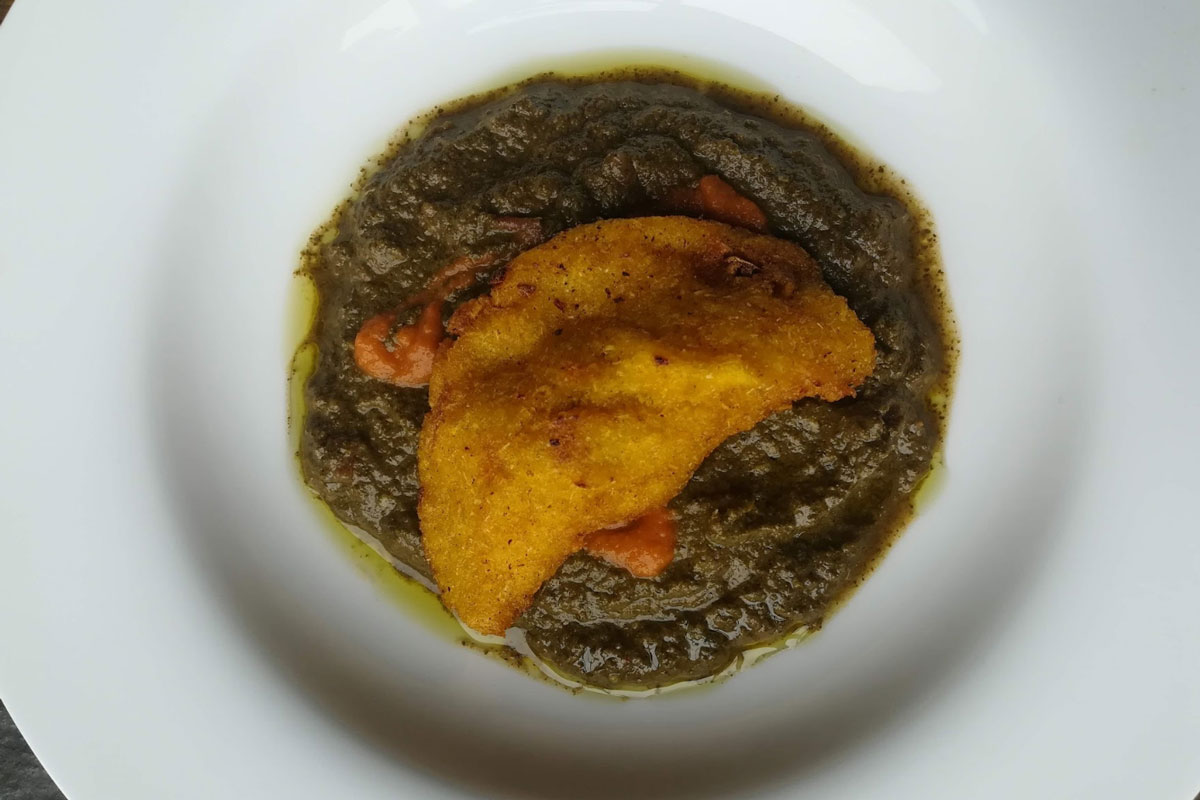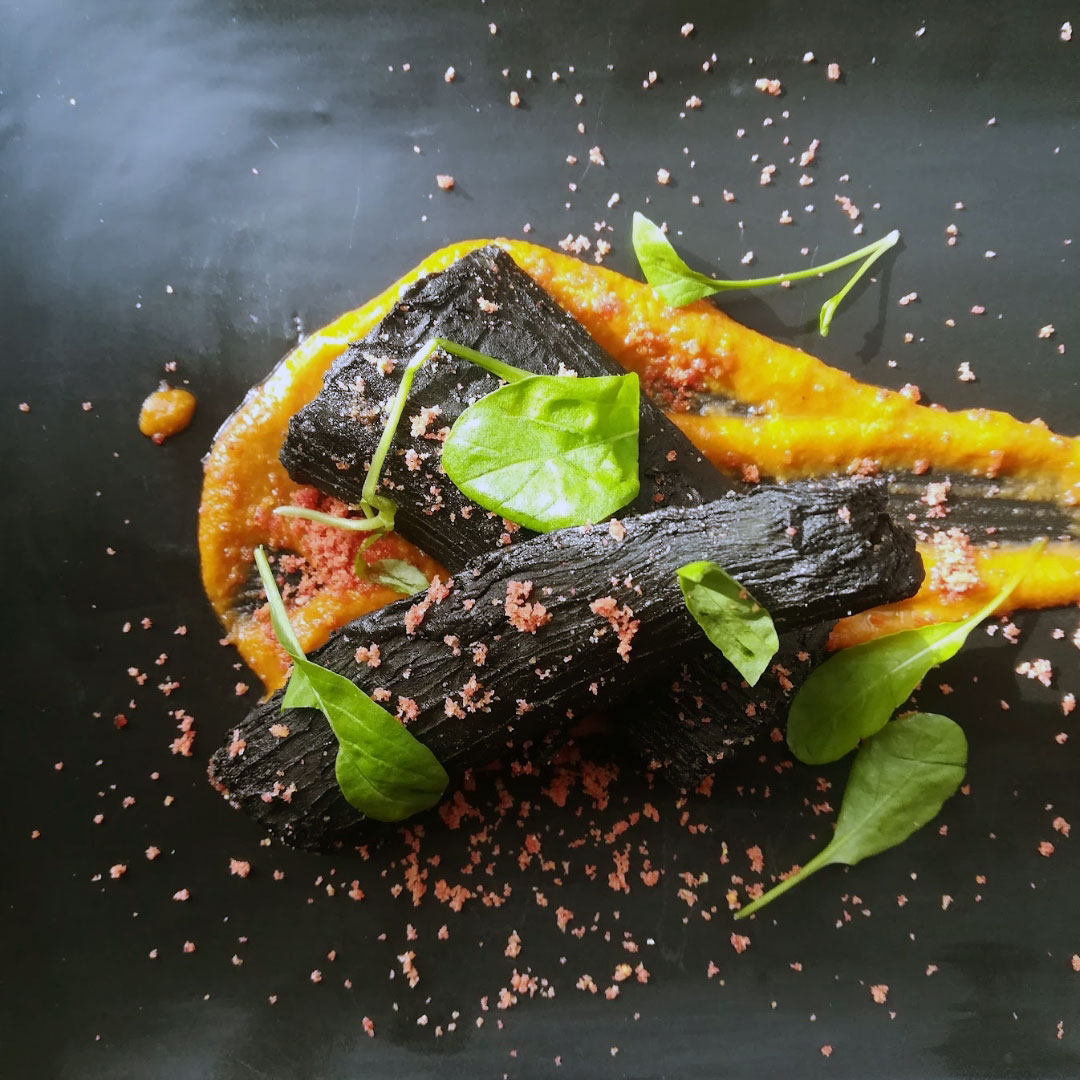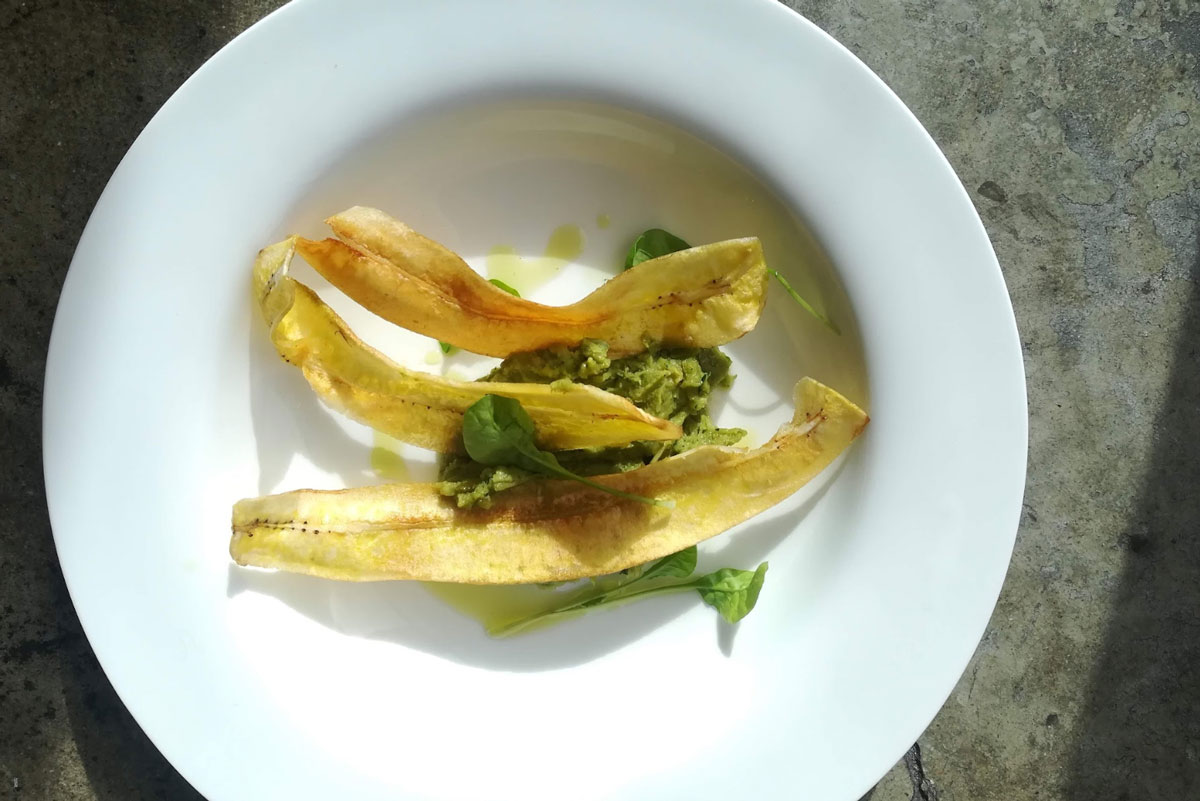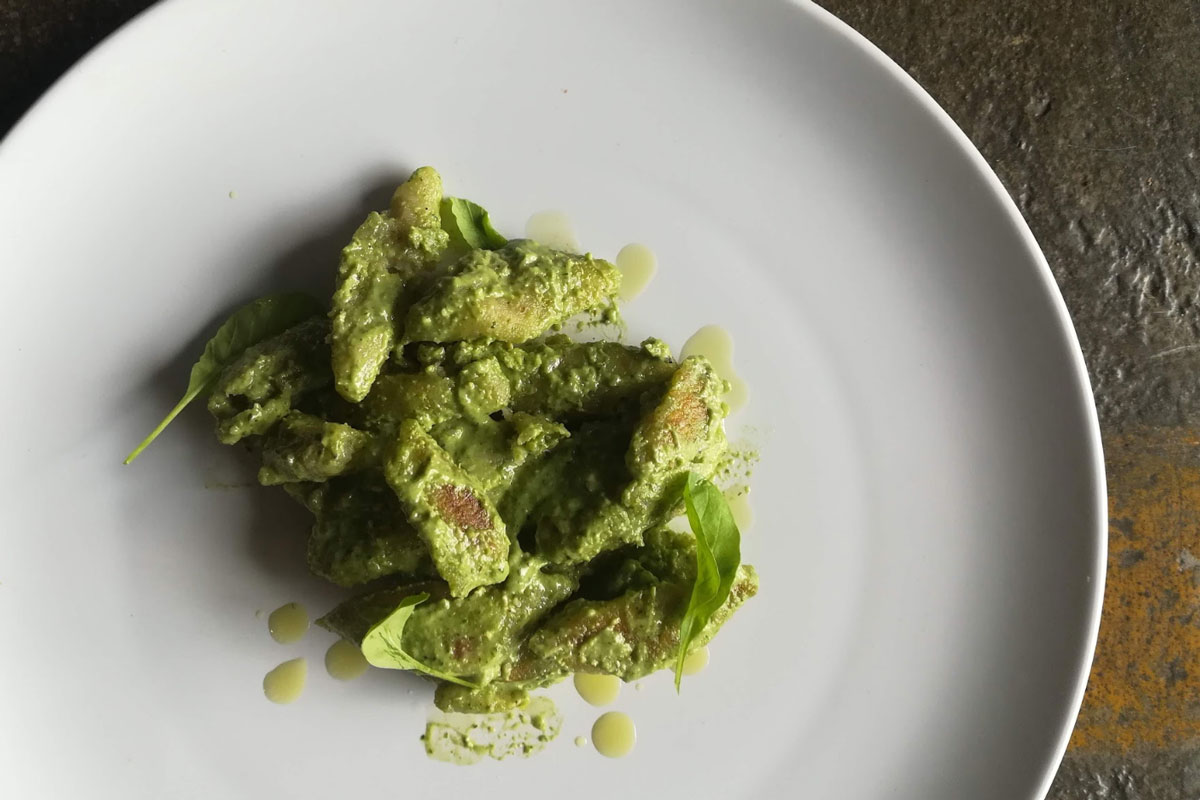4 lessons from the 2024 Food Indaba
An inventive dinner by Mmabatho Molefe was just one highlight of this year’s Food Indaba, says TASTE deputy food editor Khanya Mzongwana. She and writer Julie Nxadi share four key lessons from the chefs, entrepreneurs and activists who are our shaping our food system.
LESSON 1: Food can reflect, and comment on, societal challenges
EVENT: The Oikonomos dinner with Mmabatho Molefe, Maker’s Landing, V&A Waterfront
This event showcased an inventive menu by award-winning chef Mmabatho Molefe, named in 2023 as one of the 50 Next Food Pioneers by the World’s 50 Best. A heartfelt tribute to Nguni cuisine, her blend of humour and insightful social commentary brought to life the joys of everyday meals, perfectly highlighting the theme of this year’s Food Indaba (“oikonomos” the Greek root of the term “economics”, translates to “household management”).
The evening started with her elegant reinterpretation of the beloved Truda Go Slo chips: crispy maize rosettes with tomato spice, paired with a sophisticated iteration of ikota – mini triple-layered sandwiches filled with cured egg yolk crème and smoky sliced Frankfurter from Frankie Fenner Meat Merchants, in place of what would usually be processed lunch meat.

Later, a cleverly disguised canned fish dish featuring lightly smoked mackerel fillets over is’qa rice subtly addressed themes of poverty, unemployment and inequality, while honouring the simplicity of a common meal. Is’qa rice, a mixture of rice, potatoes, cabbage and sometimes spinach, epitomises a shared experience of hardship. Like most dishes created out of necessity, it is cost-effective and lick-the-back-of-your-spoon delicious.
A final highlight was the interactive dessert experience, where diners crafted Mmabatho’s visionary tiramisu, complete with espresso martini delivered in “IV” bags and dispensed onto the desserts by the guests themselves, plus cocoa in capsule form. Inspired by a speculative conversation with chef and cookbook author Zola Nene about how we might be eating in 2050, it was an imaginative exploration of the future of food.
View this post on Instagram
Follow Mmabatho Molefe on Instagram: @mmab_atho
CHECK OUT:Recipes by Mmabatho Molefe here
LESSON 2: We can, and must, use food to narrate powerful stories
EVENT: The Migrating Home dinner with Jane Nshuti, Maker’s Landing, V&A Waterfront
Rwandan chef Jane Nshuti presented a tasting menu that reflected her extraordinary journey to South Africa as a girl after leaving her homeland to escape the 1994 genocide in her home country. Each course symbolised a poignant chapter in her journey, a time that set her on her path to a life of cooking. “While we were in a Ugandan refugee camp, my older siblings went out to find work and my job was to stay behind and cook. I've been cooking ever since.”
Jane’s eight-course, plant-based menu demonstrated how food can convey cultural narratives and personal memories. Highlights included “Breathing, Resting”, a simple, soothing meal of sukuma week (greens) on warm chapati with fried oyster mushrooms, symbolising rare moments of rest and solace. “In Kenya, I couldn’t speak a word of English or Swahili. It was difficult to make friends, so I spent a lot of time in the kitchen with my cousin. This is where I learned how to make chapati.”

“Stranded, Fear” brought forth ash-cooked cassava root with stewed cassava leaves and gari dumpling (fermented cassava) stuffed with tofu, highlighting themes of displacement and resourcefulness. “I always looked forward to the truck that brought fried cassava and milk for breakfast. There was a delicious masala spice they would sprinkle onto the cassava, a flavour I just couldn’t get quite right. This was my best attempt at it. It lingers in my mind.”
Jane beautifully intertwined her exceptional storytelling with her culinary artistry, creating a deeply emotional and meaningful culinary journey that we will always remember.
View this post on Instagram
Follow Jane Nshuti on Instagram: @tamubyjane
ALSO READ: Being Jane Nshuti: an African Culinary Enigma
LESSON 3: We must celebrate our indigenous food and plant knowledge
EVENT: Svutusove: A Sip and a Morsel with Tapiwa Guzha, 16 on Lerotholi Art Gallery, Langa
The founder of Tapi Tapi Handmade African ice cream, Tapiwa Guzha, is renowned for celebrating and developing indigenous food and plant-life knowledge in domestic and commercial agricultural spaces. This event gave us so much more than the promised five courses of ice cream and sorbet – each paired with a drink made using fynbos and continentally specific plants.
The first course introduced the Kei apple, native to southern Africa, as a golden, tart syrup that, once gently turned in dry ice, formed a refreshing sorbet. Tapiwa talked us through the history of this resilient fruit, then motioned us towards a ginger-beer fermented with sagey fynbos. And, just like that, the sharp and cheeky Kei was hushed by the sweet, spicy drink.

Another favourite was the amasi and sour fig ice cream with maize meal sugar-comb topping, an homage to the childhood memories that live at the bottom of a pot of burnt maize-meal – and the inventiveness in the face of food scarcity that those memories represent.
To experience these and other continentally inspired ice-cream flavours, such as impepho-smoked caramel ice cream with roasted egusi seeds, pay a visit to Tapiwa’s one-of-a-kind ice-cream shop in Cape Town.
View this post on Instagram
Tapi Tapi, 76 Lower Main Rd, Observatory, Cape Town; @_tapi_tapi on Instagram
ALSO READ: Meet the man using ice cream as a platform for humanitarian work
LESSON 4: By honouring our food heritage, we deepen the connection to our cultural roots
EVENT: The Wine Shaq with Nomhle Zondani, Maker’s Landing, V&A Waterfront
At the dinner hosted by dynamic wine entrepreneur Nomhle Zondani, who founded The Wine Shaq in 2017 to champion black-owned wine brands, guests had the opportunity to taste traditional beverages and wines paired with Xhosa cuisine by chef Cikizwa Galela of Ciki Graceland Café. A graduate of the Maker’s Landing kitchen incubation programme, Cikizwa is making notable strides in mainstreaming traditional Xhosa dishes.

After Nomhle guided us through the history of fermented Xhosa drinks and offered tastings of amasi, amarhewu, and umqombothi, we were treated to a memorable six-course meal. Highlights included amagwinya stuffed with creamy curried potatoes, which the owner of Mosi Wines, Joseph Tinashe Dhafana, paired with his Tinashe Chenin Blanc. Ntsiki Biyela of Aslina Wines served a robust Chardonnay with buttery, honeyed flavours, perfectly complementing the spicy sweetness of chakalaka and dombolo. Praisy Dlamini’s HER Chenin Blanc accompanied the third course of tender umleqwa and umngqusho.
Dessert featured a whimsically reimagined isijingi paired with Nomhle’s own brew of gemmer, a fitting way to end an event that highlighted the importance of preserving and celebrating traditional Xhosa cuisine while adapting it creatively.
View this post on Instagram
The Wine Shaq: 10 Ndlwana Street, Settlers Way, Langa, Cape Town; 064 050 3355, @thewineshaq on Instagram
Ciki Graceland Café: ciki@gracelandcafe.co.za; 065 205 1482
Photographs: Iain Harris and Khanya Mzongwana



Comments